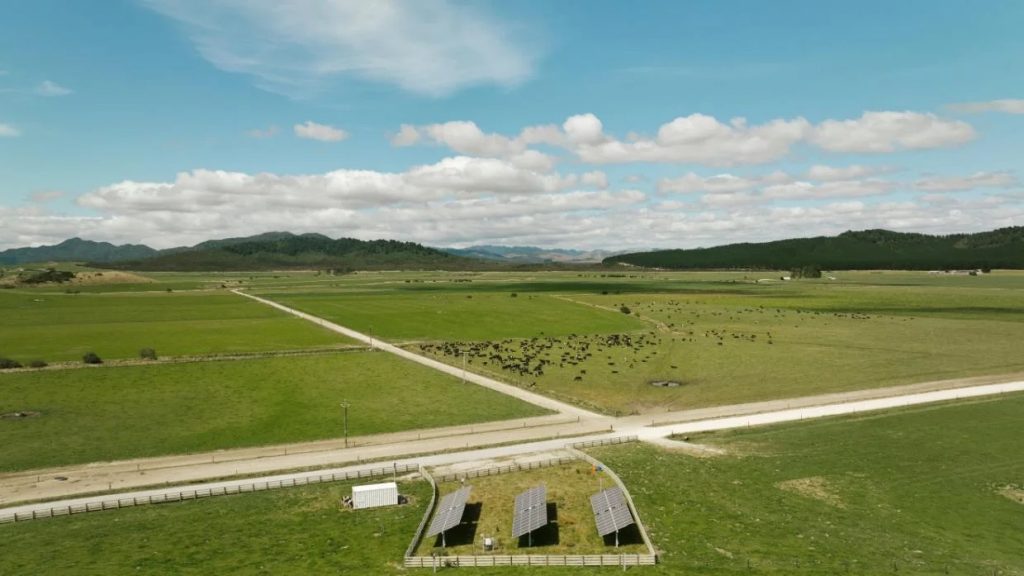
Construction is just months away for what’s slated to become the country’s largest solar farm, near Taupō.
Following a lengthy appeals process, Nova Energy chief executive Babu Bahirathan said all the consents required to develop its 400MW solar farm, to be known as Te Rāhui, were now in hand.
Construction is scheduled to start in the coming months, with the Taupō mayor and a neighbouring tavern looking forward to extra faces in the area.
Bahirathan said the project would create hundreds of local jobs during construction and valuable training opportunities in the burgeoning solar sector.
 Nova Energy chief executive Babu Bahirathan said the project would create hundreds of local jobs during construction.
Nova Energy chief executive Babu Bahirathan said the project would create hundreds of local jobs during construction.SUPPLIED
Te Rāhui is being built in two stages, Bahirathan said, and while awaiting the Environment Court’s decision Nova Energy was able to select contractors, undertake site investigation work, and do grid connections.
“The location of the site is advantageous, being on a 220kV grid connection with land and grid capacity to, in time, host a large grid-scale battery system, which will improve grid security.”
As the solar plant is built, dairy operations will be phased out and sheep will be introduced to the site to maintain the land post-construction, “ensuring a harmonious balance between renewable energy production and agricultural practices”.
Federated Farmers Rotorua/Taupō provincial president Colin Guyton said the organisation was “neutral” about the development.
 Nova Energy’s solar farm, Te Rāhui, is on the Napier-Taupō Highway about 35km from Taupō.
Nova Energy’s solar farm, Te Rāhui, is on the Napier-Taupō Highway about 35km from Taupō.SUPPLIED
“Yes, there are some who are disappointed we will lose good dairy land, but we do understand that getting good quality renewable energy is also important.
“I can see both sides of the story … it does appear there are quite a few solar farms popping up around the country and we hope they are not all using good farm land.
“But, this project seems to tick all the boxes from the solar point of view … it’s very close to the national grid.”
Taupō mayor David Trewavas welcomed the news and said he was excited about further job opportunities for locals as the district solidified its reputation as the country’s powerhouse for renewable energy.
 Te Rāhui has easy access to the national grid and there are plans to build a large-scale battery to store electricity in the future.
Te Rāhui has easy access to the national grid and there are plans to build a large-scale battery to store electricity in the future.SUPPLIED
“We now supply well over 20% of New Zealand’s renewable energy, and that’s good for everyone in the country.
“The guys up at the Rangitāiki Tavern will be happy to hear this too, having gone though some very tough times.”
Rangitāiki Tavern co-owner Aaron Inwood said the project would help keep their business going.
“It’s quite exciting actually … and it will have a few bonuses for the area.
“I’m assuming we can fill our accommodation for a few years with some workers – so we have our fingers crossed there – and hopefully there will be a few lunches and breakfasts going on,” he said.
Bahirathan said the site’s name, Te Rāhui, was selected by mana whenua in honour of a treasured ancestor and chief, and embodies the traditional Māori practice of rāhui, which focuses on the preservation, protection and reservation of nature’s bounty.
He said Nova Energy had started a biodiversity protection and enhancement programme at Te Rāhui, with a focus on restoring wetlands and tributaries.
“In 2023, a 7.4ha area was fenced, and 40,000 native plants were planted by local tangata whenua businesses, with species selected in consultation with local tangata whenua, Bay of Plenty Regional Council, and the Department of Conservation.
“The naming of the solar project as Te Rāhui reflects our deep respect for the land and the people of this region. It is a symbol of our commitment to sustainable development and our responsibility towards future generations,” Bahirathan said.
You can now read the most important #news on #eDairyNews #Whatsapp channels!!!
🇺🇸 eDairy News INGLÊS: https://whatsapp.com/channel/0029VaKsjzGDTkJyIN6hcP1K



















